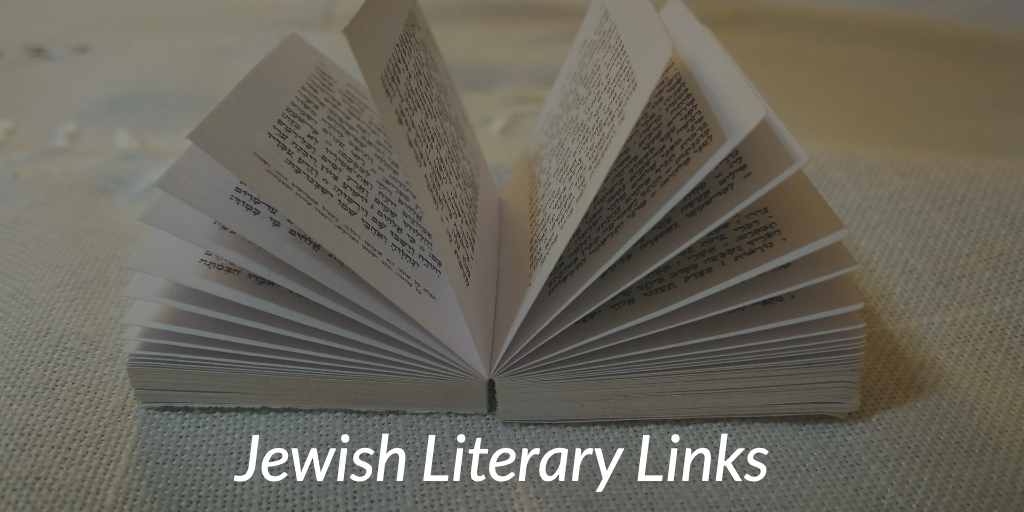Jewish Literary Links

Toward the end of each week, the My Machberet blog presents a collection of links, drawn primarily from the world of Jewish books and writing.
Friends, a prefatory note: It’s another week when there’s a lot to share regarding antisemitism in literary spaces. I wish that this weren’t so. It’s overwhelming, frankly—and I’m just sharing what’s public. You have no idea how much of my time has been devoted to this subject outside public view.
I want to start off, however, with some more celebratory and “routine” news.
(more…)